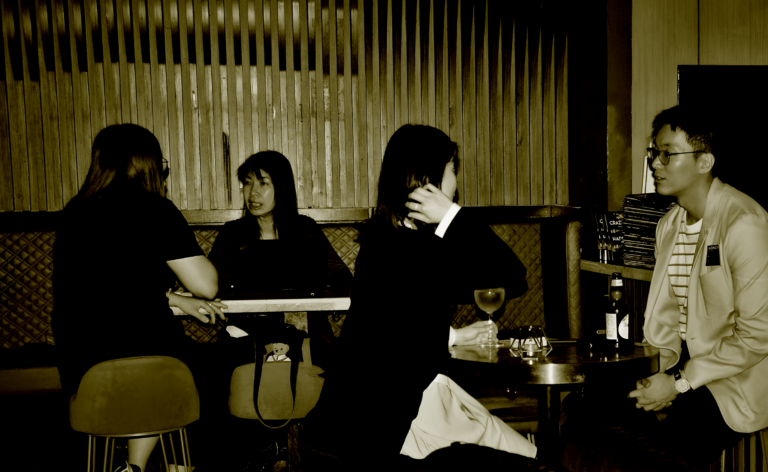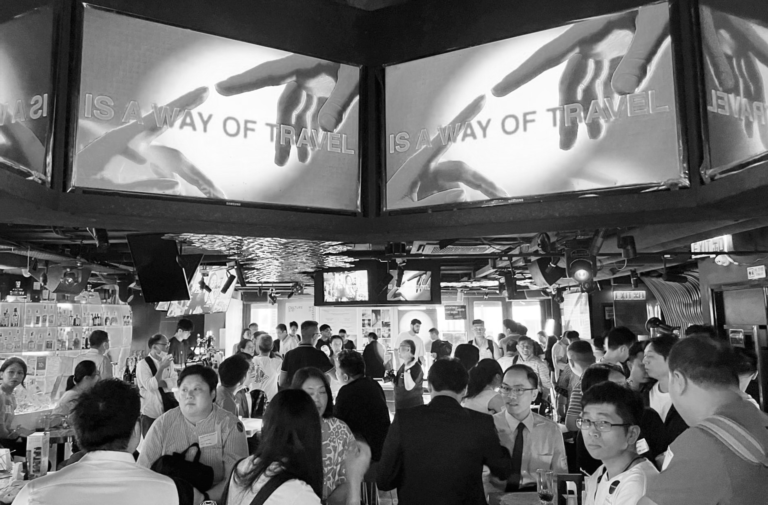DIRK DALICHAU.
general manager MONDRIAN HK. owner DNA square ltd. HONG KONG.
the new meaning of work: is what we want out there?
The much-discussed problem of not only finding the “right” talent, but indeed finding people at all to do the job, affects every developed country today. Once found, keeping employees from leaving after a short period of time seems equally tricky.
The inability of most industries to solve this issue is often blamed on the “New Generation” and their changed expectations. But is this phenomenon more a result of the changing landscape of life? This is no longer a question of age and generational differences. Today, it affects everyone regardless of age and background. It is a result of changing lifestyles, shifting values, priorities, and even global events. With increased information, evolving technology, and limitless access to news from across the globe, the ability for more people to get educated, compare, and broaden their mind has driven a shift in expectations and desires.
This new perspective on how to live, and the fact that companies are competing for talent, mandates a different approach to sourcing, recruiting, and treating talent. Companies have to demonstrate their ability to understand job seekers’ needs and show they are able to change and adapt.
Exploring the evolving landscape of employment, a critical question arises: is what people truly want in their careers and from work out there? The answer is complex, reflecting a shift in perspectives about work, purpose, and community.
In addition to changing lifestyle trends, we saw a transformation of our understanding of work environments during the pandemic. Many now appreciate the flexibility of remote work, which can enhance productivity and personal wellbeing. However, the office still holds value as a place for collaboration and connection. Indeed, many industries cannot even offer this alternative, as they require employee presence. The ideal scenario probably blends both worlds whenever possible, enabling employees to choose their environment based on their tasks, job requirements, and preferences.
Traditionally, climbing the corporate ladder was seen as the ultimate goal. However, a growing number of individuals are prioritizing balance and fulfillment over sheer ambition and indeed money. The idea of “lying low” doesn’t imply complacency; rather, it reflects a desire to align work with personal values and well-being. It is a choice conscious of life’s limited time and a result of a more informed work force.
As society shifts, so does the definition of what work means. Today, many seek careers that not only provide financial stability but also resonate with their values and aspirations. This transformation encompasses various dimensions:
Culture and Community. Work culture has taken center stage. Organizations that foster a positive environment where individuals feel respected and valued attract top talent. Being part of a community makes work more meaningful, contributing to a sense of belonging and happiness.



Higher Purpose and Making a Difference. More professionals are driven by a higher purpose. They seek roles that align with their values and allow them to contribute to society. Whether through sustainable practices or social impact initiatives, many are determined to make a difference in both their company and the world and expect to work for organizations who give back, operate responsibly, and contribute to the community. How companies demonstrate how they value people and planet over profit is key. Companies that prioritize the wellbeing of their employees and the environment are seen as desirable workplaces. This shift reflects a broader understanding that business success should not come at the expense of ethical considerations.
Reputation, Success, and Future Prospects. The reputation of a company heavily influences career decisions. Employees want to align themselves with organizations that are future-oriented and recognized for their integrity and success. A positive reputation not only attracts talent but also fosters loyalty among employees.
Respect and Individuality. A real shift has also evolved in how employees expect companies to be organized and structured. The modern workplace is less about rigid hierarchies and more about respecting individual identities. Employees wish to be their authentic selves, which fosters creativity and innovation. Companies that embrace diversity and inclusion create environments where everyone can thrive.
Work-Life Balance and Fair Remuneration. A holistic approach to work-life balance is now essential. Employees desire flexibility in their schedules and workloads. Additionally, fair remuneration and benefits are critical for attracting and retaining talent. When organizations provide competitive compensation and a supportive atmosphere, they create loyal and motivated teams.
Communication and Growth. Open communication is vital in fostering a culture of growth. Transparency within organizations encourages collaboration and trust. Employees who feel heard and valued are more likely to contribute positively and engage in their own professional development.
Whether what people want in their careers and expect organizations to deliver exists, is a complex problem. The increased prioritization of the multifaceted issues of mental health, wellbeing, and work-life harmony, rather than just productivity and profitability, will require non-traditional employment arrangements. Thoughts about profit margins and deliverables might need to shift towards recognizing demands for more flexible schedules, parental leave, and other benefits to accommodate changing family structures and lifestyles. And of course, Automation and AI are displacing certain types of routine tasks, leading to a need to reskill and transition to new roles.
Essentially, the meaning of “work” is shifting from a narrow focus on financial compensation and time spent at a desk to a more holistic view of how we spend our time, contribute to society, and find purpose and fulfillment.
The specifics can vary widely depending on industry, location, and individual preferences. But in general, the definition of work is becoming more fluid, personalized, and oriented towards wellbeing rather than just productivity metrics.
Many aspects of work are indeed changing for the better, with companies understanding these changed needs better. The process has started, and while it is probably slower in the Eastern Hemisphere compared to the West, it is on its way. The new definition of work emphasizes community, value, purpose, wellbeing, and an abolition of stringent hierarchies. While not every job or company meets these criteria, the growing trend towards meaningful work is encouraging and widely recognized. At the forefront are startups, technology companies, renewable energy, and new media firms who are driving the change. Many other industries will need to make changes quickly to catch up and address the growing needs and expectations of the workforce.
It will take time, with individuals continuing to demand more from their employers, for organizations to adapt and continue to attract and nurture talent in an ever-evolving marketplace. But it would be fair to say that what we are looking for is out there—at least to some extent. It may not be perfect, but knowing that a company’s vision includes a desire for change and a real commitment to make it happen, as well as the involvement of those who ask for it in the process, can make all the difference.